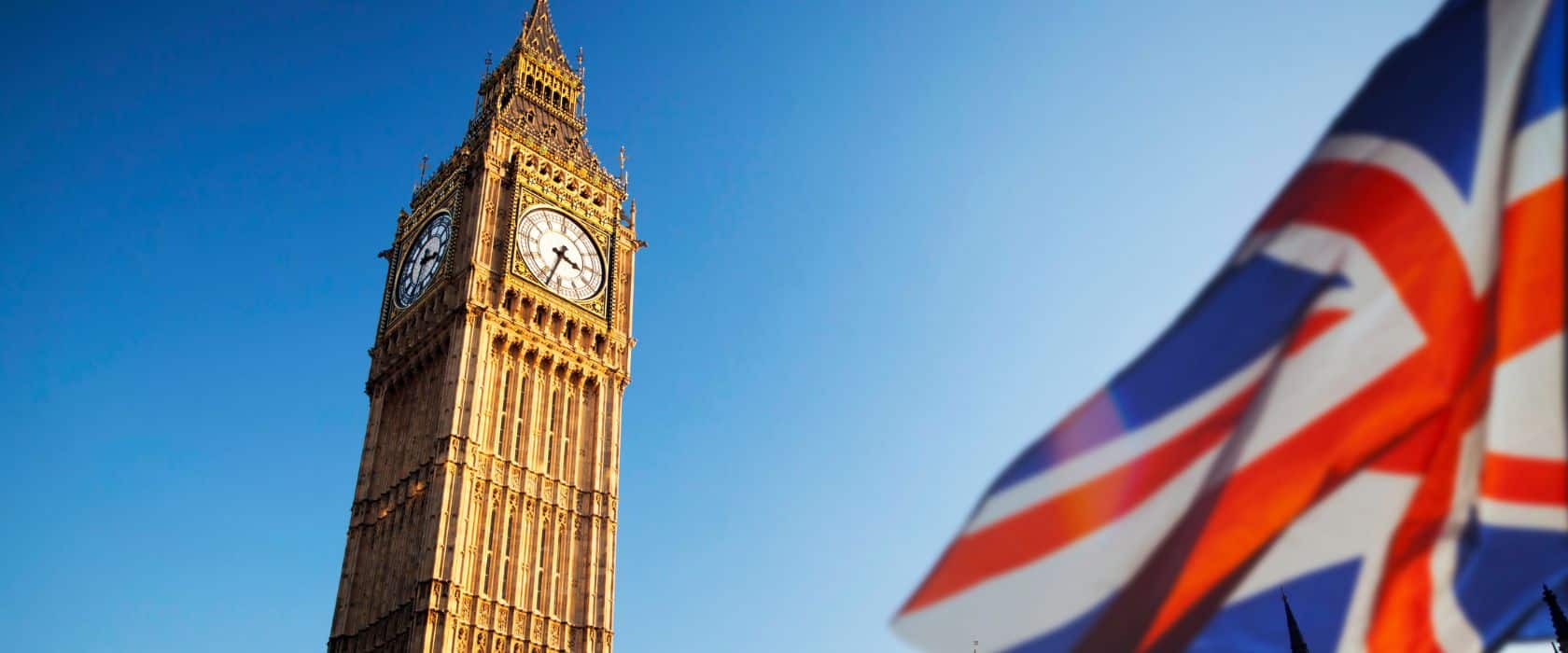What Are the Best Business Schools in the UK?
Top MBA schools in the United Kingdom attract global students by offering strong academics, industry ties, and leadership training. In particular, top UK schools, such as the London Business School (LBS) and the University of Oxford, emphasise empathy in leadership training today. Similarly, Imperial College Business School, Warwick, and Cambridge develop leaders who drive success through empathy in leadership.
Why the UK Is a Top Destination for Business Education
International students choose the UK for its excellent education, global exposure, and strong job prospects after graduation. Most MBA schools in the UK offer flexible study formats and focus on leadership, innovation, and practical business skills. A UK MBA is globally recognised, providing graduates with the flexibility to work anywhere in the world.
Moreover, students gain real-world experience through internships, real-life business projects, and gain access to leading global companies. Furthermore, UK campuses welcome diverse students and create inclusive classrooms with peers from over 100 different countries. These benefits help students achieve leadership roles, upgrade their skills, or transition to various careers.
The UK Business School Landscape
The top five schools secure high positions in the 2025 Financial Times and QS Global MBA rankings, offering one-year English programs.
Notably, schools like LBS, Imperial, and Warwick hold triple crown accreditation, showcasing the United Kingdom’s strong global academic landscape.
Additionally, UK schools excel in finance, strategy, healthcare, and innovation, preparing students for success across a broad range of industries.
Top 5 Business Schools in the UK for International Students
Let’s take a closer look at the top five UK business schools for international students:
1. London Business School – Full-time MBA
The London Business School (LBS) is located in London’s financial centre. It offers a 15- to 21-month flexible MBA, as well as a new one-year MBA starting in 2025. LBS ranked 7th in the Financial Times MBA Rankings for 2025. Over 90% of students come from abroad, creating a diverse, global classroom. LBS focuses on finance, strategy, entrepreneurship, and leadership.
Additionally, graduates frequently join top firms like McKinsey, Amazon, and Google. The school connects students to 55,000 alumni working in 156+ countries. Events like the Summit Series expose students to global business challenges and leaders.
Subsequently, these experiences can help students land high-impact roles across industries and global markets.
2. Cambridge Judge Business School – MBA
Similarly, Cambridge Judge Business School offers a one-year MBA with small classes and global consulting projects. The school emphasises entrepreneurship and innovation, with support from Accelerate Cambridge and the Entrepreneurship Centre. Judge Business School secured the 35th rank in the Financial Times Rankings 2025.
Judge Business School is also recognised for its commitment to sustainability and diversity. Notably, 98% of its MBA students are international, and 55% of its advisory board members are women. Cambridge’s strong tech ecosystem and 14,000 alumni in 144 countries help build leadership skills and aid graduates in pursuing lasting business careers. Employers like PwC, TikTok, and Google regularly recruit Judge graduates.
3. Saïd Business School, University of Oxford – MBA
Meanwhile, Saïd Business School, at the University of Oxford, offers a one-year MBA focused on global leadership, sustainability, and impact. Students complete real-world projects, such as the Global Opportunities and Threats Oxford (GOTO) initiative. Oxford lands 26th in the Financial Times MBA Rankings in 2025.
The program builds skills in ESG, entrepreneurship, and innovation. Graduates work at Bain, BCG, and McKinsey. Oxford’s 30,000-strong alumni network spans 159 countries, supporting global career growth and leadership development.
4. Warwick Business School (WBS) – Full-time MBA
At Warwick Business School (WBS), the full-time MBA has a solid reputation for its flexibility and leadership training. Students gain global experience through consulting projects and international trips. Warwick ranks 62nd in the 2025 Financial Times MBA rankings.
WBS pioneered distance learning MBAs and remains strong in online innovation, placing third for its Online MBA in the FT rankings for 2025.. The school’s global alumni actively support students in tech, consulting, and leadership careers across industries.
In addition, WBS is based at the University of Warwick campus near Coventry, offering a vibrant student life and balanced career environment.
5. Imperial College Business School – Full-time MBA
The Imperial College Business School‘s one-year MBA blends business with innovation, tech, and analytics. Students study finance, strategy, and data while working on sustainability and transformation projects. London’s tech scene and Imperial’s research networks offer great opportunities. Imperial takes the 38th place in the Financial Times MBA Rankings for 2025.
Eventually, graduates can land roles at organisations such as Amazon, Deloitte, and Revolut. The school’s 33,000 alumni in 157 countries support career mobility and tech-focused leadership.
Initiatives such as Imperial’s Innovation Challenge and Global Insights Speaker Series, along with other applied learning opportunities, mean that Imperial graduates can adapt to today’s fast-moving, tech-driven global business landscape.
Cost of Studying an MBA in the UK
Tuition in UK Business Schools varies by institution, ranging from around £33,000 to over £120,000 for the whole program.
For instance, Oxford Saïd and LBS charge among the highest fees at UK £124,920 and UK £119,950, reflecting their global reputations. Schools like Cambridge Judge charge UK £74,000 in the UK. Whereas Warwick at UK £57,500, and Durham at UK £33,000 offer more cost-accessible options without compromising quality. Students typically spend between UK £800 and £1,200 per month in London on living expenses.
Therefore, to reduce financial pressure, UK institutions offer scholarships like Chevening and Commonwealth Shared, as well as school-specific awards. Many applicants increase their chances of funding by applying early and demonstrating leadership potential or financial need.
Student Life in the UK
The life of an MBA student in the UK is vibrant, intense, and full of opportunities. MBA cohorts bring together classmates from up to 60 countries, creating a diverse and truly global learning environment. The academic schedule moves quickly with lectures, case studies, group projects, simulations, and leadership development programs. One-year MBA programs, in particular, maintain a fast-paced and intensive learning environment.
Career development is a significant focus, with frequent career fairs, company visits, networking events, and skills workshops. Students often get involved in a wide range of clubs and societies, such as consulting, investment, entrepreneurship, and tech clubs. Leadership roles in these groups are highly valued.
Students enjoy a rich social life with weekend trips, formal dinners, pub nights, sports events, and cultural festivals. Living arrangements vary, with students choosing between campus accommodation or private rentals, though London can be particularly expensive. Hence, balancing studies and social life is challenging, and most MBA students describe the experience as a rewarding but intense sprint.
Career Opportunities & Job Prospects
Newly minted MBAs from the UK certainly enjoy a high level of career success after they graduate. London Business School placed 86% of MBA grads in jobs within three months of graduation. Oxford Saïd Business School helped 80% secure new roles with strong career growth. Imperial College achieved 81% job placement within three months. Cambridge Judge Business School placed 83% in roles within four months. Warwick Business School placed 89% of its students in jobs within three months.
Consequently, graduates often land roles at global firms like McKinsey, PWC, and Deloitte. UK schools run employer events, alum panels, and workshops. In addition, they also connect students with internships and consulting projects with top global companies.
How to Apply to a UK Business School
To apply, applicants will need a three-year bachelor’s degree from a recognised institution and 2–5 years of full-time work experience. Most schools require GMAT or GRE scores, though some offer waivers based on professional experience.
Students must submit IELTS or TOEFL scores to prove English proficiency. Applications also require a resume, letters of recommendation, and a personal essay that outlines your goals and motivations. UK MBA programs accept applications in rounds from September to May each year. Schools invite shortlisted candidates for interviews, held either online or in person.
Moreover, by hosting pre-MBA boot camps and early networking events, many UK programs help students settle in confidently before the start of classes. Those who apply early often secure better access to scholarships and financial aid, making early planning a smart move.
Excellence, Opportunity, and Innovation: Why the UK is the Top Choice for Your MBA
Start your MBA journey in the UK, where academic excellence meets global industry access in every classroom and conversation.
In fact, explore the UK’s historic campuses as you build the skills to lead in finance, tech, consulting, or your venture. UK MBA programs push you to think critically, lead confidently, and grow your network across borders and industries.
Learn more about studying in the United Kingdom on MBAGRADSCHOOLS.





